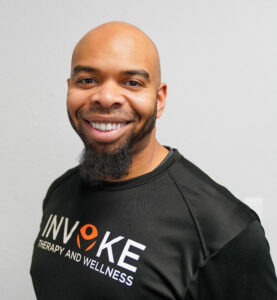
Sleep is an essential part of life. We know we need it, we know we don’t feel great when we don’t have enough or have too much. Something less intuitive about sleep is the vital role it plays in not only healing, but also in avoiding injury in the first place. Studies of adolescents have shown that those who get 6 hours of sleep or less are 1.7X more likely to be injured than those who get 8+ hours of sleep. This is tied to the effects that sleep has on the neuromuscular response.
Poor sleep results in a significant decrease in reaction time, 200-300ms, this is massive as the average human reaction time is about 250ms. When it comes to sports or exercises a 100% or more decrease in decision and reaction can cost you a game or result in an injury from poor adaptation. Not only is the reaction time decreased but the neuromuscular coordination (brain-muscle connection) is impaired, which can result in poor recruitment strategies and quality. Another common path to injury.
When good sleep is made a priority tangible positive benefits can be achieved rapidly. A study from Stanford University on their basketball team found that by mandating 8hrs as the minimum standard for sleep in the program the players demonstrated improved sprint speed, better shooting accuracy, and demonstrated decreased fatigue. All of this was achieved without change to practice, sleep is a literal gamechanger.
Sleep dictates the recovery process, whether that be from an injury, or just from exercise. The fatigue we experience when we really push ourselves during exercise demands a unique form of recovery. Instead of Rapid Eye Movement (REM) sleep which we are more familiar with we need Slow Wave Sleep (SWS). This type of sleep happens before REM and occupies around 20% of total sleep time. This is where the body flushes out the bad and restocks the good stuff that muscles and bones need to remodel and recover. The brain as well takes this time to flush itself out, including cleaning out the key protein found in Alzheimer’s plaques. The harder you push yourself the more of this SWS you need to fully recover.
Stress is another factor that must be accounted for in the healing, recovery, and injury prevention processes. Stress is something that athletes willingly endure via training and conditioning. As well as unwillingly thorough all of the unknowns that life throws at us. When it comes to training it is up to the athlete and coaches to push the body in a way that encourages gains but minimizes risk of deconditioning or injury. This is best achieved by keeping training efforts at 0.8-1.5 on the Acute: Chronic Workload Ratio (ACWR). It’s a simple ratio of Acute Load (7 days average) / Chronic Load (28days average). Controlling what you can control is critical to positive outcomes.
Other stressors, physical, emotional, psychological also play a role in healing. Stress increases the amount of cortisol in the body and dysregulates the inflammatory process. As inflammation is key to a variety of disease states this is to be avoided as best as possible. Stress also has a deleterious effect on bone mineral density, further increasing risk of serious injury. Stress often leads to disrupted sleep cycles, and we’ve covered how this negatively affects so many systems. The good news is that there are a variety of ways to deal with stress, and you should not hesitate to contact a professional to get yourself on the right track. Normalize your sleep cycles as little as 1 day of quality sleep can restore fatigue. 2 days of quality sleep can restore high-order cognitive tasks.
Healing is multi-factorial. Your injury may be to your ankle, back, knee, etc. but that’s not all that’s affected. Stress, sleep, diet, all contribute to the healing process, and need to be considered and addressed. This level of attention is what we pride ourselves on at Invoke Therapy. How you feel and how you heal are intertwined and by addressing you as a whole person we maximize you healing potential. Schedule an appointment today and experience the difference!

